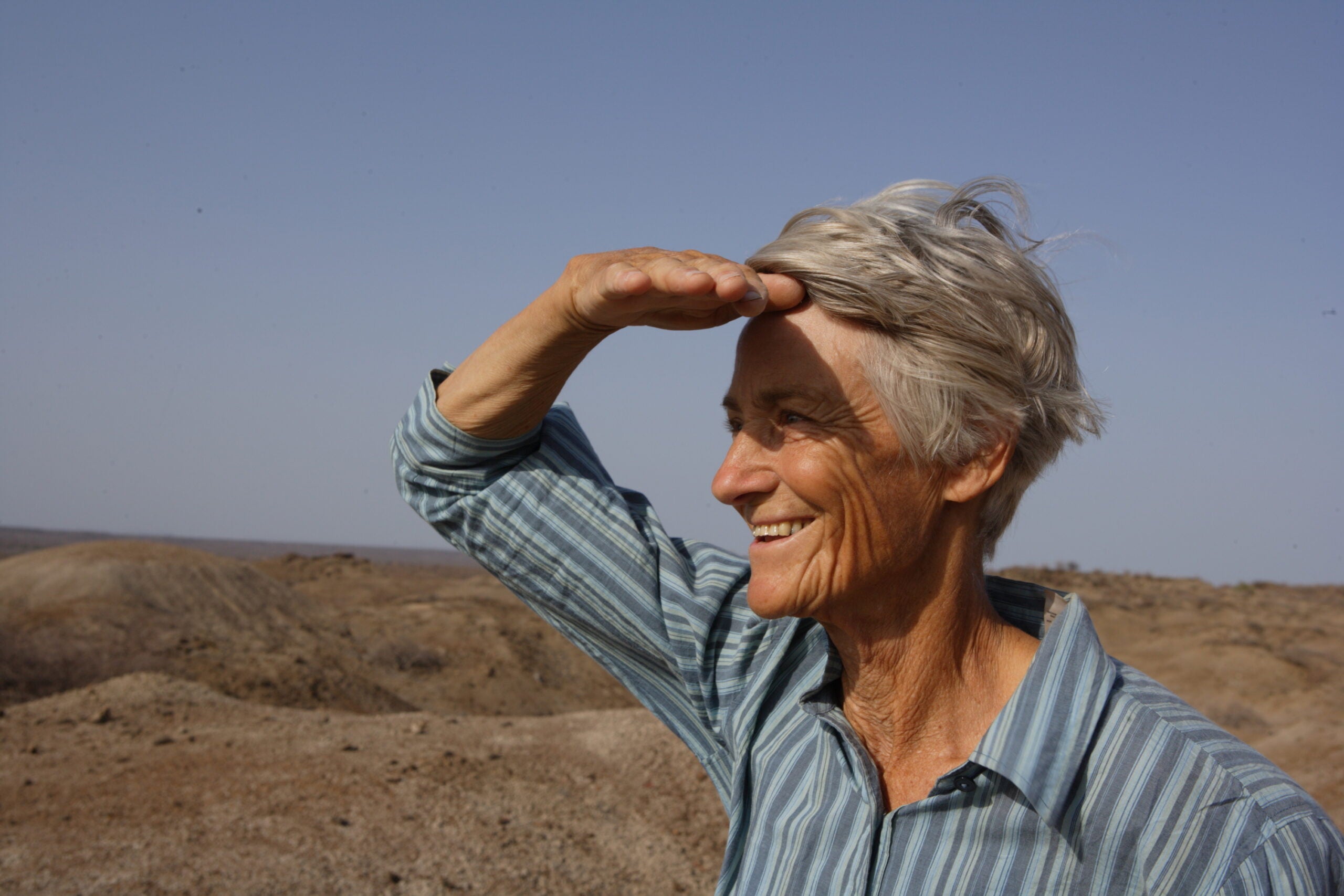KINGSTON, R.I.- September 15, 2017- Meave Leakey, a paleoanthropologist, National Geographic Hubbard Medal recipient, director of the Turkana Basin Institute, and research professor at Stony Brook University, will present the Eleanor M. and Oscar M. Carlson Women’s Studies Lecture Sept. 26 as part of the University of Rhode Island’s Honors Colloquium.
Titled, “Origins: Life, the Universe and Everything,” this fall’s colloquium will address such questions as “Where did we come from? How did the universe begin? How did intelligent, rational beings arise? And from such humble beginnings, how did we develop a mind that can ask these big questions? Now in its 54th year, the colloquium is the University’s premier public lecture series. Her lecture will be shown on the web at stream.uri.edu
In advance of her presentation on fossils that provide evidence of human evolution, URI Communications and Marketing reached out to Leakey for a preview of her talk.
- What will be the focus of your lecture?
I will be talking about some of the milestones in my own career and how these have influenced me. I will bring in some of the highlights of our discoveries and their significance. I want to emphasize the importance of technology in making humans what we are. Since the earliest stone tools were made 3.3 million years ago, humans have developed more and more sophisticated technological innovations that have profoundly affected who we are and what we do.
- You have been quoted as saying that the most exciting part of your job is not knowing when the next discovery will happen. What does it feel like when you make a discovery?
I believe that what drives me and in fact all explorers, scientists and others who discover things is the thrill of finding something new, and something that was not known before and often something unexpected. In my career, each discovery has been different but all have been exciting and fascinating and led to intriguing studies that reveal more than is at first apparent.
- What has been your favorite or most substantial find?
In my career my most substantial find would be a tiny advertisement on the back page of the British Times newspaper that led me initially to Kenya, to later meet my husband and then to my career working in the field in the Turkana Basin. In my fieldwork there are several significant finds but perhaps the squashed, cracked and distorted cranium of Kenyanthropus platyops would be the most significant. This unattractive fossil showed for the first time, that Lucy (Australopithecus afarensis) was not the only human ancestor living between 4 and 3 million years ago, and not necessarily therefore the ancestor of all later humans as had been assumed for the previous three decades.
- What do you hope that people who attend your lecture take from it?
I hope it will prick their curiosity about the human past and stimulate them to think about our role on this planet. We have only been here for approximately 200,000 years and yet we have come to profoundly affect many aspects of the planet on which our lives depend. We have a responsibility to preserve all that the planet offers. Our evolutionary history followed the same pattern as that of all other forms of life, but it led eventually to a very different species. Our large brains allow us to think about ourselves and the role we should play, our dexterous hands allow us to make intricate objects, and our sense of self allows us to think about our role in life and our future. And yet I believe that too few people think much about any of these things. I believe that an understanding of our past ultimately makes us more aware of our place on this planet and our responsibilities to care for its future.
Olivia Ross, an intern in the Marketing and Communications Department at URI and public relations major, wrote this press release.
Sponsors: Honors Program • URI Office of the President • URI Office of the Provost • 125th Anniversary Steering Committee • URI Foundation • The Mark and Donna Ross Honors Colloquium Humanities Endowment • The Thomas Silvia and Shannon Chandley Honors Colloquium Endowment • URI College of Arts & Sciences • URI College of Pharmacy • URI John Hazen White Sr. Center for Ethics and Public Service • URI Gender and Women’s Studies Program • URI Office of Community, Equity and Diversity • URI College of Engineering • URI College of the Environment and Life Sciences • URI College of Health Sciences • URI College of Business Administration • URI College of Nursing • URI Division of Student Affairs • URI Department of Communications and Marketing • URI Department of Publications and Creative Services • URI ITS Instructional Technology and Media Services • URI Feinstein College of Education and Professional Studies • George and Anne Ryan Institute for Neuroscience.

